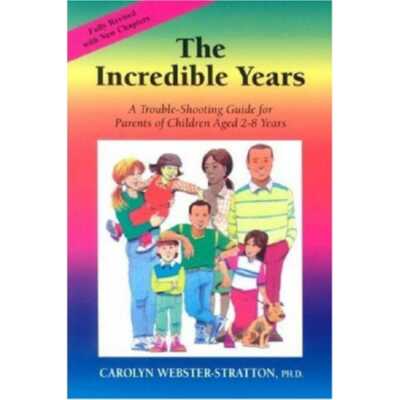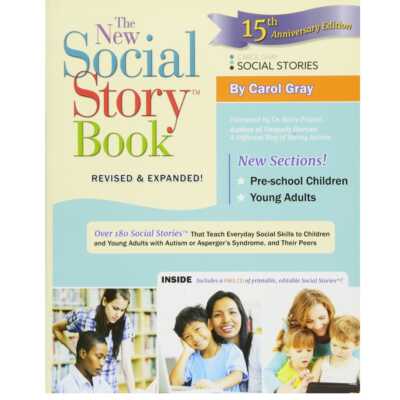-
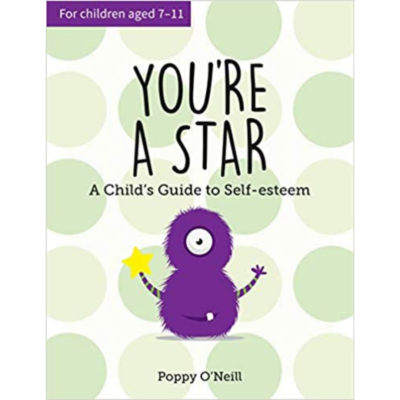 Paperback Published 8 March 2018 by Poppy O'Neill Does your child often feel isolated and do they struggle to get involved in social situations? Are they nervous about what people think of them, or maybe they’re just a little unsure of how they feel about themselves? These could be signs that your child is experiencing low self-esteem. This practical guide combines proven cognitive-behavioural therapy methods used by child psychologists in schools with simple activities to help your child grow their self-esteem. It’s aimed at children aged 7–11 because a lot happens in these years that can impact a child’s sense of self-worth, not just now but for years to come. Your child will be guided, with the help of Bop – a friendly and supportive character they can identify with – through fun and engaging activities which are interspersed with useful tips, inspirational statements and practical information for parents.
Paperback Published 8 March 2018 by Poppy O'Neill Does your child often feel isolated and do they struggle to get involved in social situations? Are they nervous about what people think of them, or maybe they’re just a little unsure of how they feel about themselves? These could be signs that your child is experiencing low self-esteem. This practical guide combines proven cognitive-behavioural therapy methods used by child psychologists in schools with simple activities to help your child grow their self-esteem. It’s aimed at children aged 7–11 because a lot happens in these years that can impact a child’s sense of self-worth, not just now but for years to come. Your child will be guided, with the help of Bop – a friendly and supportive character they can identify with – through fun and engaging activities which are interspersed with useful tips, inspirational statements and practical information for parents. -
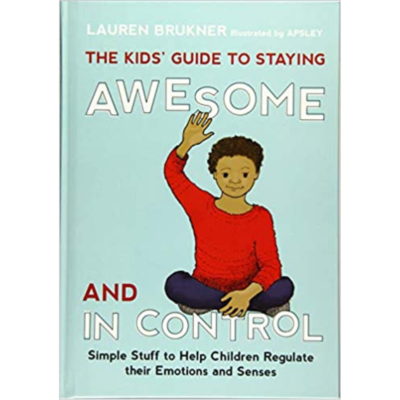 Paperback Published 22 July 2014 by Packed with simple ideas to regulate the emotions and senses, this book will help children tackle difficult feelings head-on and feel awesome and in control! From breathing exercises, pressure holds and finger pulls, to fidgets, noise-reducing headphones and gum, the book is brimming with fun stuff to help kids feel cool, calm and collected. They will learn how to label difficult feelings, choose the perfect strategies and tools to tackle them, and use these correctly whether at home or at school. The strategies and tools are accompanied by cartoon-style illustrations, and the author includes useful tips for parents and teachers as well as handy visual charts and checklists to track learning and progress. Armed with this book, kids will be well on their way to managing difficult emotions and feeling just right in whatever situation life throws at them! Suitable for children with emotional and sensory processing difficulties aged approximately 7 to 14 years.
Paperback Published 22 July 2014 by Packed with simple ideas to regulate the emotions and senses, this book will help children tackle difficult feelings head-on and feel awesome and in control! From breathing exercises, pressure holds and finger pulls, to fidgets, noise-reducing headphones and gum, the book is brimming with fun stuff to help kids feel cool, calm and collected. They will learn how to label difficult feelings, choose the perfect strategies and tools to tackle them, and use these correctly whether at home or at school. The strategies and tools are accompanied by cartoon-style illustrations, and the author includes useful tips for parents and teachers as well as handy visual charts and checklists to track learning and progress. Armed with this book, kids will be well on their way to managing difficult emotions and feeling just right in whatever situation life throws at them! Suitable for children with emotional and sensory processing difficulties aged approximately 7 to 14 years. -
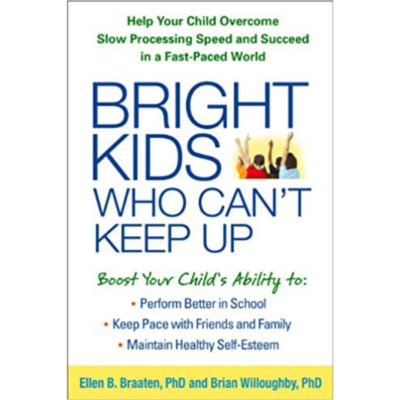 Paperback Published 17 Feb 2014 by Do you find yourself constantly asking your child to pick up the pace? Does he or she seem to take longer than others to get stuff done--whether completing homework, responding when spoken to, or getting dressed and ready in the morning? Drs. Ellen Braaten and Brian Willoughby have worked with thousands of kids and teens who struggle with an area of cognitive functioning called processing speed, and who are often mislabeled as lazy or unmotivated. Filled with vivid stories and examples, this crucial resource demystifies processing speed and shows how to help kids (ages 5 to 18) catch up in this key area of development. Helpful practical tools can be downloaded and printed in a convenient 8 1/2 x 11 size. Learn how to obtain needed support at school, what to expect from a professional evaluation, and how you can make daily routines more efficient--while promoting your child's social and emotional well-being.
Paperback Published 17 Feb 2014 by Do you find yourself constantly asking your child to pick up the pace? Does he or she seem to take longer than others to get stuff done--whether completing homework, responding when spoken to, or getting dressed and ready in the morning? Drs. Ellen Braaten and Brian Willoughby have worked with thousands of kids and teens who struggle with an area of cognitive functioning called processing speed, and who are often mislabeled as lazy or unmotivated. Filled with vivid stories and examples, this crucial resource demystifies processing speed and shows how to help kids (ages 5 to 18) catch up in this key area of development. Helpful practical tools can be downloaded and printed in a convenient 8 1/2 x 11 size. Learn how to obtain needed support at school, what to expect from a professional evaluation, and how you can make daily routines more efficient--while promoting your child's social and emotional well-being. -
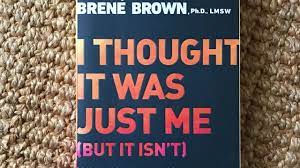 Paperback Published 21 March 2008 by Brene Brown
Paperback Published 21 March 2008 by Brene BrownResearcher, thought leader, and New York Times bestselling author Brené Brown offers a liberating study on the importance of our imperfections--both to our relationships and to our own sense of self
The quest for perfection is exhausting and unrelenting. There is a constant barrage of social expectations that teach us that being imperfect is synonymous with being inadequate. Everywhere we turn, there are messages that tell us who, what and how we're supposed to be. So, we learn to hide our struggles and protect ourselves from shame, judgment, criticism and blame by seeking safety in pretending and perfection. Brené Brown, PhD, LMSW, is the leading authority on the power of vulnerability, and has inspired thousands through her top-selling books Daring Greatly, Rising Strong, and The Gifts of Imperfection, her wildly popular TEDx talks, and a PBS special. Based on seven years of her ground-breaking research and hundreds of interviews, I Thought It Was Just Me shines a long-overdue light on an important truth: Our imperfections are what connect us to each other and to our humanity. Our vulnerabilities are not weaknesses; they are powerful reminders to keep our hearts and minds open to the reality that we're all in this together. Brown writes, "We need our lives back. It's time to reclaim the gifts of imperfection--the courage to be real, the compassion we need to love ourselves and others, and the connection that gives true purpose and meaning to life. These are the gifts that bring love, laughter, gratitude, empathy and joy into our lives." -
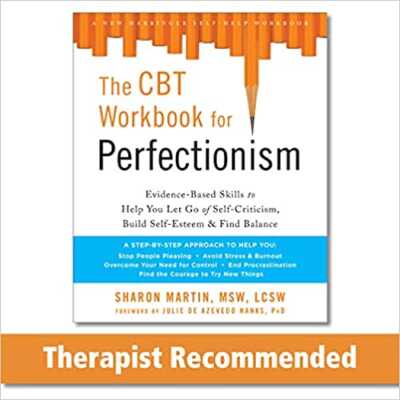 Paperback Published 28 Feb 2019 by
Paperback Published 28 Feb 2019 byIf you feel an intense pressure to be perfect, this evidence-based workbook offers real strategies based in cognitive-behavioural therapy (CBT) to help you develop a more balanced and healthy perspective.
Do you hold yourself-and perhaps others-to extremely high standards? Do you procrastinate certain tasks because you're afraid you won't carry them out perfectly? If you've answered "yes" to one or both of these questions, chances are you're a perfectionist. And while there's nothing wrong with hard work and high standards, perfectionism can also take over your life if you let it. So, how can you find balance? With this workbook, you'll identify the causes of your perfectionism and the ways it is negatively impacting your life. Rather than measuring your self-worth by productivity and accomplishments, you'll learn to exercise self compassion, and extend that compassion to others. You'll also learn ways to prioritize the things that really matter to you, without focusing on attaining fixed goals. Life isn't perfect, and neither are we. If you're ready to break free from out-of-control perfectionism and start living a richer, fuller life, this workbook will help you get started. -
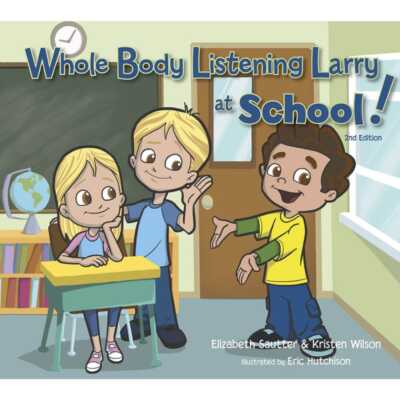 Paperback Published 2011 by
Paperback Published 2011 byThis is our 2nd book in our two-part series to help our students develop a better concept of holistic listening, or Whole Body Listening. In this charming comic book, based on the idea created by Susanne P. Truesdale (1990), the authors, Sautter and Wilson explore how two siblings, Leah and Luka struggle to focus their brains and bodies during the school day. Kindly, a peer mentor helps to explain to these students how they need to use their eyes, hands, feet, heart, brain, etc. to listen in group environments to not only access the information but to work as part of a group. Preschool through 2nd - 3rd grade students love the antics of our characters as they teach this important concept in a very fun manner!
-
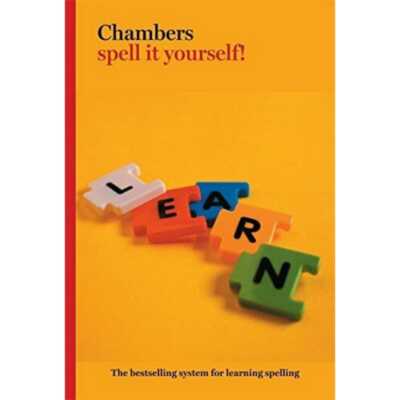 Paperback Published 24 August 2007 by Spell It Yourself! is a consistently-bestselling title for upper primary school pupils that is now being published by Chambers. It lists over 7,500 words that children might use, and alongside each word is straightforward guidance on how to spell derived forms and compounds of the word, for example running, runner, runway. Therefore the book not only makes it quick and easy for a child to find the spellings they need, but it also reinforces knowledge of word families and of how to spell words from their root forms. Homophones of the words are indicated, both to help children find the right word and to encourage them to learn the correct spellings. Useful additional sections give the spellings of first names, countries, contractions such as mustn't, and all the different forms of numbers.
Paperback Published 24 August 2007 by Spell It Yourself! is a consistently-bestselling title for upper primary school pupils that is now being published by Chambers. It lists over 7,500 words that children might use, and alongside each word is straightforward guidance on how to spell derived forms and compounds of the word, for example running, runner, runway. Therefore the book not only makes it quick and easy for a child to find the spellings they need, but it also reinforces knowledge of word families and of how to spell words from their root forms. Homophones of the words are indicated, both to help children find the right word and to encourage them to learn the correct spellings. Useful additional sections give the spellings of first names, countries, contractions such as mustn't, and all the different forms of numbers. -
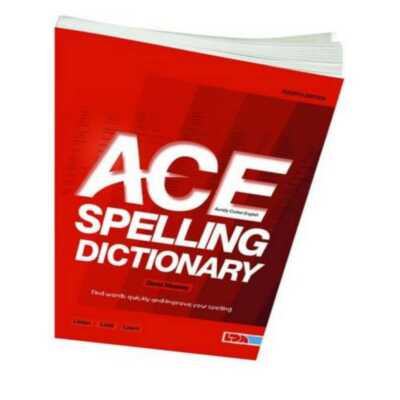 Paperback Published 1 January 2012 by Pupils with spelling difficulties often experience problems with the whole curriculum and lose confidence with writing. The 'ACE Spelling Dictionary' adopts a unique approach in order to overcome these issues, providing over 20,000 entries for commonly-misspelt words.
Paperback Published 1 January 2012 by Pupils with spelling difficulties often experience problems with the whole curriculum and lose confidence with writing. The 'ACE Spelling Dictionary' adopts a unique approach in order to overcome these issues, providing over 20,000 entries for commonly-misspelt words. -
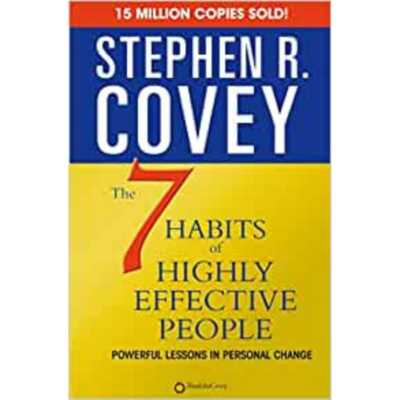 Paperback Published 4 January 1999 by In THE 7 HABITS OF HIGHLY EFFECTIVE PEOPLE Stephen R. Covey presents a holistic, integrated, principle-centred approach for solving personal and professional problems. With penetrating insights and pointed anecdotes, Covey reveals a step-by-step pathway for living with fairness, integrity, honesty and human dignity - principles that give us the security to adapt to change, and the wisdom and power to take advantage of the opportunities that change creates. 'Fundamentals are the key to success. Stephen Covey is the master of them. Buy his book, but most importantly, use it!' - Anthony Robbins, author of UNLIMITED POWER.
Paperback Published 4 January 1999 by In THE 7 HABITS OF HIGHLY EFFECTIVE PEOPLE Stephen R. Covey presents a holistic, integrated, principle-centred approach for solving personal and professional problems. With penetrating insights and pointed anecdotes, Covey reveals a step-by-step pathway for living with fairness, integrity, honesty and human dignity - principles that give us the security to adapt to change, and the wisdom and power to take advantage of the opportunities that change creates. 'Fundamentals are the key to success. Stephen Covey is the master of them. Buy his book, but most importantly, use it!' - Anthony Robbins, author of UNLIMITED POWER. -
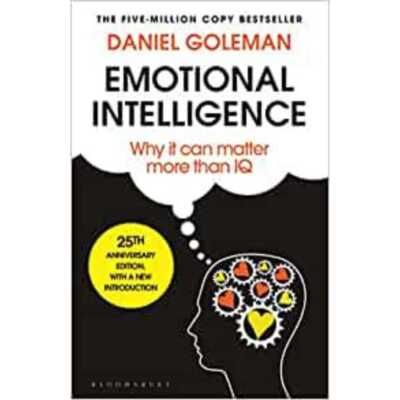 Paperback Published 12 September 1996 by The groundbreaking bestseller that redefines intelligence and success Does IQ define our destiny? Daniel Goleman argues that our view of human intelligence is far too narrow, and that our emotions play major role in thought, decision making and individual success. Self-awareness, impulse control, persistence, motivation, empathy and social deftness are all qualities that mark people who excel: whose relationships flourish, who are stars in the workplace. With new insights into the brain architecture underlying emotion and rationality, Goleman shows precisely how emotional intelligence can be nurtured and strengthened in all of us.
Paperback Published 12 September 1996 by The groundbreaking bestseller that redefines intelligence and success Does IQ define our destiny? Daniel Goleman argues that our view of human intelligence is far too narrow, and that our emotions play major role in thought, decision making and individual success. Self-awareness, impulse control, persistence, motivation, empathy and social deftness are all qualities that mark people who excel: whose relationships flourish, who are stars in the workplace. With new insights into the brain architecture underlying emotion and rationality, Goleman shows precisely how emotional intelligence can be nurtured and strengthened in all of us. -
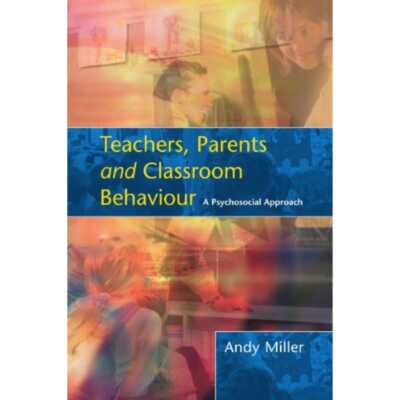 Paperback Published 1 October 2003 by The behaviour of students in schools is a matter of great concern. Legislation, media coverage and 'test cases' are flooding into the public consciousness at an increasing pace. The relative responsibility of teachers and parents is a particularly prominent and contentious issue. This book examines the reasons why strong statements of mutual recrimination and blame often occur in this area, before looking at policies and practices which are co-operative, preventive and proactive in nature. But this is not solely another book of tips and techniques. In addition to describing strategies with a proven evidence base, it also demonstrates, within a coherent framework, how and why these approaches achieve their aims. This book provides an in-depth understanding of key psychological factors for those in schools struggling in this vexed and pressing area and for that widening group of professionals charged with working in partnership to bring about demonstrable change.
Paperback Published 1 October 2003 by The behaviour of students in schools is a matter of great concern. Legislation, media coverage and 'test cases' are flooding into the public consciousness at an increasing pace. The relative responsibility of teachers and parents is a particularly prominent and contentious issue. This book examines the reasons why strong statements of mutual recrimination and blame often occur in this area, before looking at policies and practices which are co-operative, preventive and proactive in nature. But this is not solely another book of tips and techniques. In addition to describing strategies with a proven evidence base, it also demonstrates, within a coherent framework, how and why these approaches achieve their aims. This book provides an in-depth understanding of key psychological factors for those in schools struggling in this vexed and pressing area and for that widening group of professionals charged with working in partnership to bring about demonstrable change. -
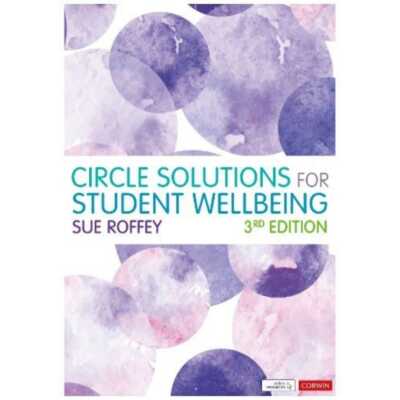 Paperback Published 20 February 2014 by 'This is a very practical guide to a teaching approach that enables children to become more powerful learners; it is also an opportunity to spend time with a big-hearted person who understands what happens for children in school and how circles can help them grow.' - James Park, PROGRESS Director, Human Scale Education (www.progress-hse.org) 'Grounded in contemporary research, Roffey ignites the reader's conviction that 'I can do this too!' Gifting the educator with a treasure chest of fresh, engaging, practical and applicable ideas, this book makes it possible for every teacher to build both the learning and well-being of all young people.' - Kerry Bird, Project Manager for Personal and Social Development Education in Catholic Education - Cairns and Brisbane First published as Circle Time for Emotional Literacy, this new edition has been updated to reflect how the Circle Solutions philosophy and pedagogy can be used to build relationships and resilience for children and young people. Putting current research on wellbeing into practice, Circle Solutions addresses issues not incidents, solutions rather than problems, and strengths rather than deficits, providing a framework for student engagement and learning. New to this edition:
Paperback Published 20 February 2014 by 'This is a very practical guide to a teaching approach that enables children to become more powerful learners; it is also an opportunity to spend time with a big-hearted person who understands what happens for children in school and how circles can help them grow.' - James Park, PROGRESS Director, Human Scale Education (www.progress-hse.org) 'Grounded in contemporary research, Roffey ignites the reader's conviction that 'I can do this too!' Gifting the educator with a treasure chest of fresh, engaging, practical and applicable ideas, this book makes it possible for every teacher to build both the learning and well-being of all young people.' - Kerry Bird, Project Manager for Personal and Social Development Education in Catholic Education - Cairns and Brisbane First published as Circle Time for Emotional Literacy, this new edition has been updated to reflect how the Circle Solutions philosophy and pedagogy can be used to build relationships and resilience for children and young people. Putting current research on wellbeing into practice, Circle Solutions addresses issues not incidents, solutions rather than problems, and strengths rather than deficits, providing a framework for student engagement and learning. New to this edition:- a chapter on promoting the positive: thoughts, feelings and approaches
- more anti-bullying strategies, with cyber-bullying covered explicitly
- a quick reference appendix of games
- ways of embedding Circle Solutions as a tool for wellbeing
- updated and expanded resources.
-
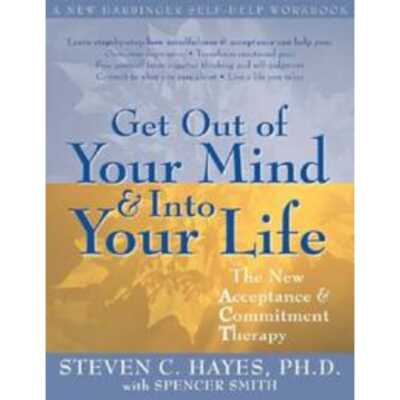 Paperback Published 2 December 2005 by This book offers a five-step plan for coping with painful emotions such as anxiety and depression. It teaches you how to learn life-enhancing behavior strategies that work to further the goals you value most. You'll learn to engage with and overcome painful thoughts and feelings with step-by-step acceptance and mindfulness-based techniques. You'll find out how to let go of control, and develop compassion and flexibility. The realization that painful feelings cannot be controlled will open you to the possibility of fully emotional living. Once present, engaged, and aware, you can begin to build new lives for yourself filled with significance and meaning. This book is not about overcoming pain or fighting emotions; it's about embracing life and feeling everything it has to offer. In this way, it offers a way out of suffering by choosing to life a life based on what matters most.
Paperback Published 2 December 2005 by This book offers a five-step plan for coping with painful emotions such as anxiety and depression. It teaches you how to learn life-enhancing behavior strategies that work to further the goals you value most. You'll learn to engage with and overcome painful thoughts and feelings with step-by-step acceptance and mindfulness-based techniques. You'll find out how to let go of control, and develop compassion and flexibility. The realization that painful feelings cannot be controlled will open you to the possibility of fully emotional living. Once present, engaged, and aware, you can begin to build new lives for yourself filled with significance and meaning. This book is not about overcoming pain or fighting emotions; it's about embracing life and feeling everything it has to offer. In this way, it offers a way out of suffering by choosing to life a life based on what matters most. -
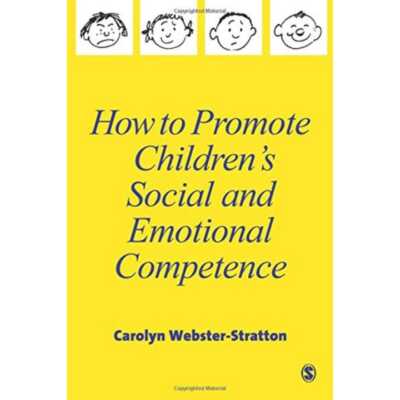 Paperback Published 18 February 2000 by Teachers understand that just as a child's cognitive competence is important for their ability to learn so too does a child's social competence and emotional security affect their ability to learn. This book will support teachers in developing social competence and emotional well- being in all children. Based on the empirically validated Dinosaur Social Skills and Problem-solving Curriculum, this book emphasizes the management of hyperactive, inattentive and aggressive children. It includes practical scripts, games, activities, pictures and circle time role-plays and plans for use with children 4-8 years. Carolyn Webster-Stratton is an educational psychologist who for twenty years has been developing and evaluating interventions to help children with behaviour problems. She is the author of the well-known parent book: The Incredible Years: A Trouble-Shooting Guide for Parents for Young Children (Ages 3-8 Years).
Paperback Published 18 February 2000 by Teachers understand that just as a child's cognitive competence is important for their ability to learn so too does a child's social competence and emotional security affect their ability to learn. This book will support teachers in developing social competence and emotional well- being in all children. Based on the empirically validated Dinosaur Social Skills and Problem-solving Curriculum, this book emphasizes the management of hyperactive, inattentive and aggressive children. It includes practical scripts, games, activities, pictures and circle time role-plays and plans for use with children 4-8 years. Carolyn Webster-Stratton is an educational psychologist who for twenty years has been developing and evaluating interventions to help children with behaviour problems. She is the author of the well-known parent book: The Incredible Years: A Trouble-Shooting Guide for Parents for Young Children (Ages 3-8 Years). -
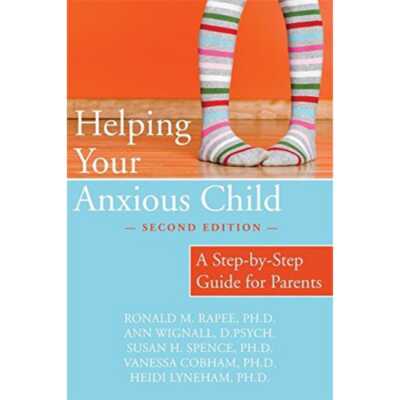 Paperback Published 26 January 2009 by This expanded and updated version of a best-selling classic guides readers to help a child overcome anxiety and fears. It describes in detail strategies and techniques they can combine into a comprehensive self-help programme for a child's particular needs. From separation anxiety to general anxiety, social anxiety, specific phobia and panic disorder, the book describes the common types of childhood anxiety, how anxiety originates, and options for dealing with the problem, with or without a therapist's help. In this updated version, the progression of chapters reflects the authors' clinical programme, in which major skills are introduced early and then are consolidated and built upon in later chapters. Throughout, the book employs a step-by-step approach that is both structured and directive. Written activities are incorporated throughout the chapters, some intended for the child and others for his or her parent to complete.
Paperback Published 26 January 2009 by This expanded and updated version of a best-selling classic guides readers to help a child overcome anxiety and fears. It describes in detail strategies and techniques they can combine into a comprehensive self-help programme for a child's particular needs. From separation anxiety to general anxiety, social anxiety, specific phobia and panic disorder, the book describes the common types of childhood anxiety, how anxiety originates, and options for dealing with the problem, with or without a therapist's help. In this updated version, the progression of chapters reflects the authors' clinical programme, in which major skills are introduced early and then are consolidated and built upon in later chapters. Throughout, the book employs a step-by-step approach that is both structured and directive. Written activities are incorporated throughout the chapters, some intended for the child and others for his or her parent to complete. -
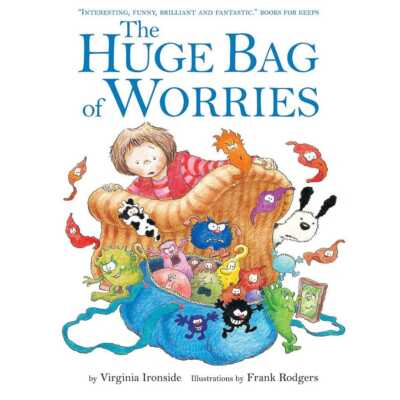 Paperback Published 6 January 2011 by Wherever Jenny goes, her worries follow her - in a big blue bag. They are there when she goes swimming, when she is watching TV, and even when she is in the lavatory. Jenny decides they will have to go. But who can help her? The Huge Bag of Worries was written by Virginia Ironside, one of Britain's leading agony aunts, and has sold 140k copies to date. 'This book can be read millions of times when you are worried.' - Books for Keeps A compelling picture book which can be used as a spring board into what worries children today.
Paperback Published 6 January 2011 by Wherever Jenny goes, her worries follow her - in a big blue bag. They are there when she goes swimming, when she is watching TV, and even when she is in the lavatory. Jenny decides they will have to go. But who can help her? The Huge Bag of Worries was written by Virginia Ironside, one of Britain's leading agony aunts, and has sold 140k copies to date. 'This book can be read millions of times when you are worried.' - Books for Keeps A compelling picture book which can be used as a spring board into what worries children today. -
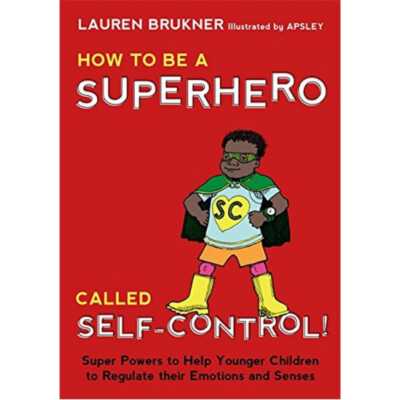 Hardcover Published 21 November 2015 by Meet Self-Control, a superhero who wants to teach young children his super powers of self-control! Anxiety, frustration, anger, and other difficult feelings won't stand a chance against their new-found powers. Self-Control teaches children with emotional and sensory regulation difficulties aged approximately 4-7 how to calm themselves using self-massage, deep pressure, breathing exercises, and activities such as making an imaginary list and finding their own peaceful place. This illustrated book also features an appendix with photocopiable super power charts, reinforcers, and reminder tools to ensure that parents, teachers, and other professionals can support children in upholding superhero strategies even after the book has been read.
Hardcover Published 21 November 2015 by Meet Self-Control, a superhero who wants to teach young children his super powers of self-control! Anxiety, frustration, anger, and other difficult feelings won't stand a chance against their new-found powers. Self-Control teaches children with emotional and sensory regulation difficulties aged approximately 4-7 how to calm themselves using self-massage, deep pressure, breathing exercises, and activities such as making an imaginary list and finding their own peaceful place. This illustrated book also features an appendix with photocopiable super power charts, reinforcers, and reminder tools to ensure that parents, teachers, and other professionals can support children in upholding superhero strategies even after the book has been read. -
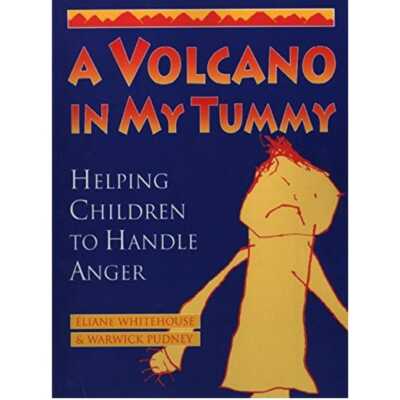 Paperback Published 16 July 1998 by A Volcano in My Tummy: Helping Children to Handle Anger presents a clear and effective approach to helping children and adults alike understand and deal constructively with children's anger. Using easy to understand yet rarely taught skills for anger management, including how to teach communication of emotions, A Volcano in My Tummy offers engaging, well-organized activities which help to overcome the fear of children's anger which many adult care-givers experience. By carefully distinguishing between anger the feeling, and violence the behavior, this accessible little book, primarily created for ages 6 to thirteen, helps to create an awareness of anger, enabling children to relate creatively and harmoniously at critical stages in their development.
Paperback Published 16 July 1998 by A Volcano in My Tummy: Helping Children to Handle Anger presents a clear and effective approach to helping children and adults alike understand and deal constructively with children's anger. Using easy to understand yet rarely taught skills for anger management, including how to teach communication of emotions, A Volcano in My Tummy offers engaging, well-organized activities which help to overcome the fear of children's anger which many adult care-givers experience. By carefully distinguishing between anger the feeling, and violence the behavior, this accessible little book, primarily created for ages 6 to thirteen, helps to create an awareness of anger, enabling children to relate creatively and harmoniously at critical stages in their development. -
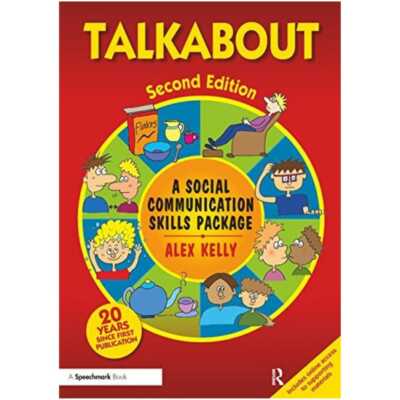 Paperback Published 28 April 2016 by This core Talkabout manual is a practical resource essential for Speech and Language Therapists and other professionals who need to help people with special needs develop social skills. Over 60 activities form an extensive, structured social skills programme that can easily be adapted for use with children, adolescents and adults. Written by bestselling author and practising Speech and Language Therapist, Alex Kelly, this book sits at the centre of an internationally renowned series of resources supporting social skills.
Paperback Published 28 April 2016 by This core Talkabout manual is a practical resource essential for Speech and Language Therapists and other professionals who need to help people with special needs develop social skills. Over 60 activities form an extensive, structured social skills programme that can easily be adapted for use with children, adolescents and adults. Written by bestselling author and practising Speech and Language Therapist, Alex Kelly, this book sits at the centre of an internationally renowned series of resources supporting social skills. -
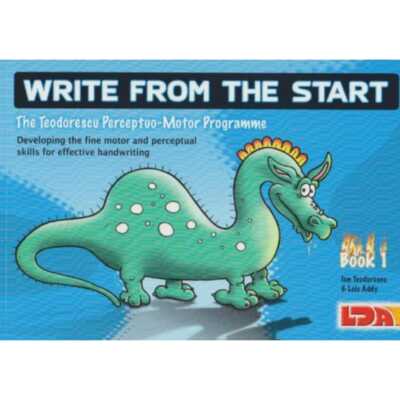 Paperback Published 18 July 1998 By The ability to produce fluent, legible handwriting with ease is something that affects attainment in most areas of the curriculum, yet many children continue to struggle with this vital skill. Based on holistic principles, this programme offers a different approach, developing the muscles of the hand - so that children gain the necessary control to produce letter forms - alongside the perceptual skills required to orientate and organize letter and words.
Paperback Published 18 July 1998 By The ability to produce fluent, legible handwriting with ease is something that affects attainment in most areas of the curriculum, yet many children continue to struggle with this vital skill. Based on holistic principles, this programme offers a different approach, developing the muscles of the hand - so that children gain the necessary control to produce letter forms - alongside the perceptual skills required to orientate and organize letter and words. -
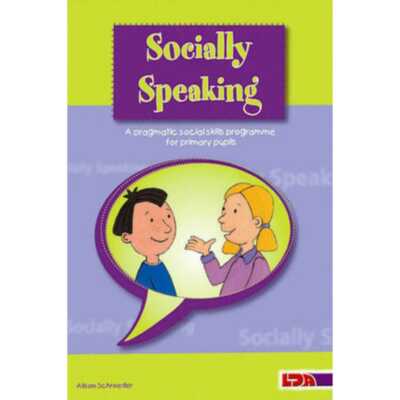 Paperback Published 21 February 1998 by This social skills programme for pupils with mild to moderate learning disabilities, physical and/or medical disabilities and for those with special needs in mainstream education is divided into three units: let's communicate; let's be friends and let's practice. It aims to increase self-esteem and improve listening skills and expressive language abilities. Teacher's notes, photocopiable illustrated pupil worksheets and assessment and evaluation forms are included.
Paperback Published 21 February 1998 by This social skills programme for pupils with mild to moderate learning disabilities, physical and/or medical disabilities and for those with special needs in mainstream education is divided into three units: let's communicate; let's be friends and let's practice. It aims to increase self-esteem and improve listening skills and expressive language abilities. Teacher's notes, photocopiable illustrated pupil worksheets and assessment and evaluation forms are included. -
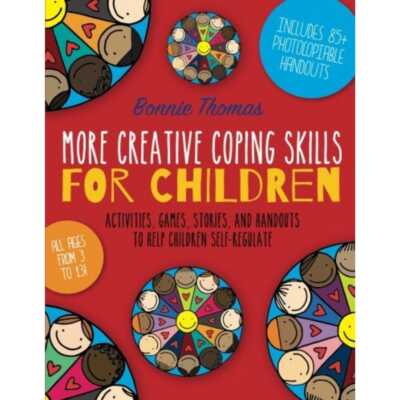 Paperback Published 18 August 2016 by This collection of fun and adaptable activities, games, stories and handouts is a complete resource for supporting children coping with stress and difficult emotions. From engaging arts and crafts, to interactive stories and relaxing meditations, all the interventions and activities are thematically structured so that each chapter contains the means for building specific skills or overcoming behavioral issues. Each chapter contains suggested goals, positive affirmations and photocopiable handouts to enable a child to continue practising and learning new life skills outside of sessions with parents or professionals. The activities in this book are ideal for use with children aged 3-12 to help them rebalance and gain a strong grasp on their emotions.
Paperback Published 18 August 2016 by This collection of fun and adaptable activities, games, stories and handouts is a complete resource for supporting children coping with stress and difficult emotions. From engaging arts and crafts, to interactive stories and relaxing meditations, all the interventions and activities are thematically structured so that each chapter contains the means for building specific skills or overcoming behavioral issues. Each chapter contains suggested goals, positive affirmations and photocopiable handouts to enable a child to continue practising and learning new life skills outside of sessions with parents or professionals. The activities in this book are ideal for use with children aged 3-12 to help them rebalance and gain a strong grasp on their emotions.

